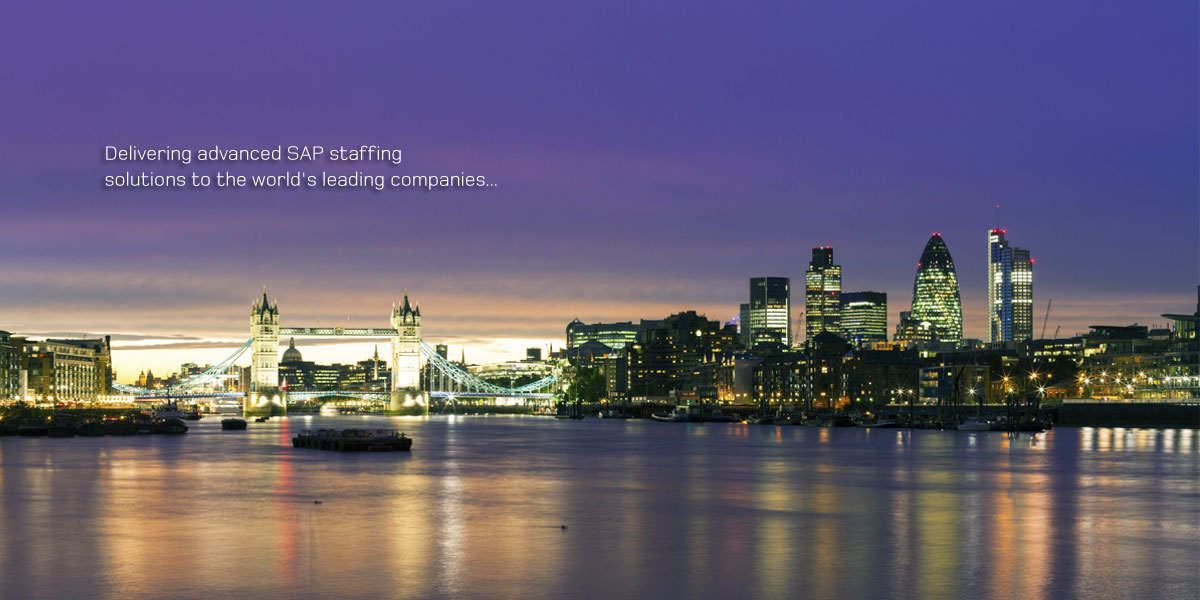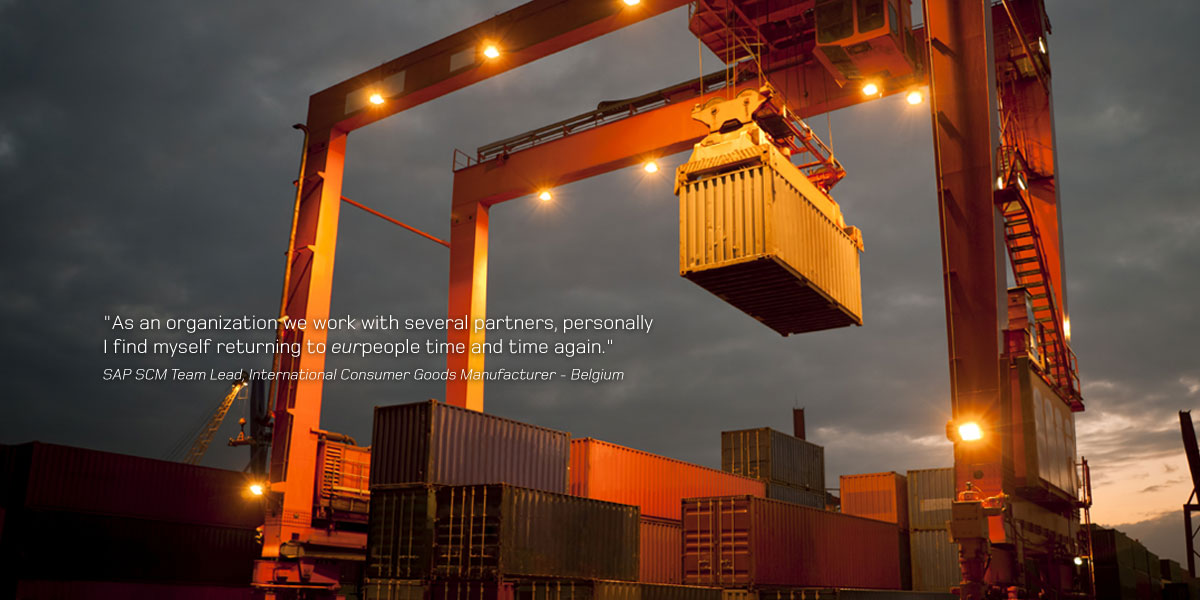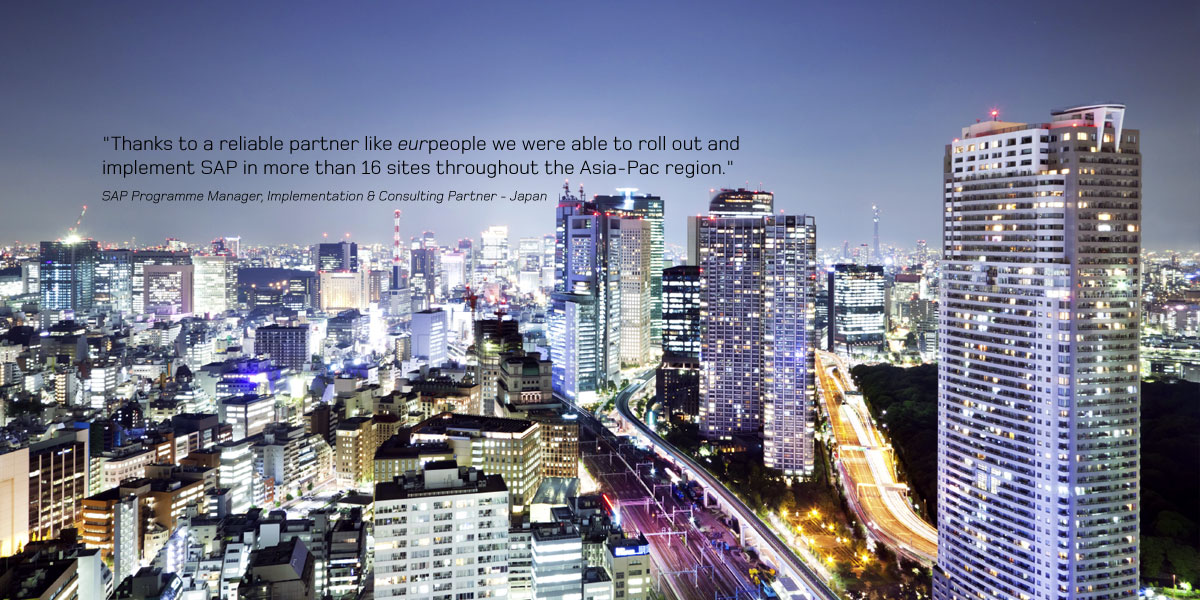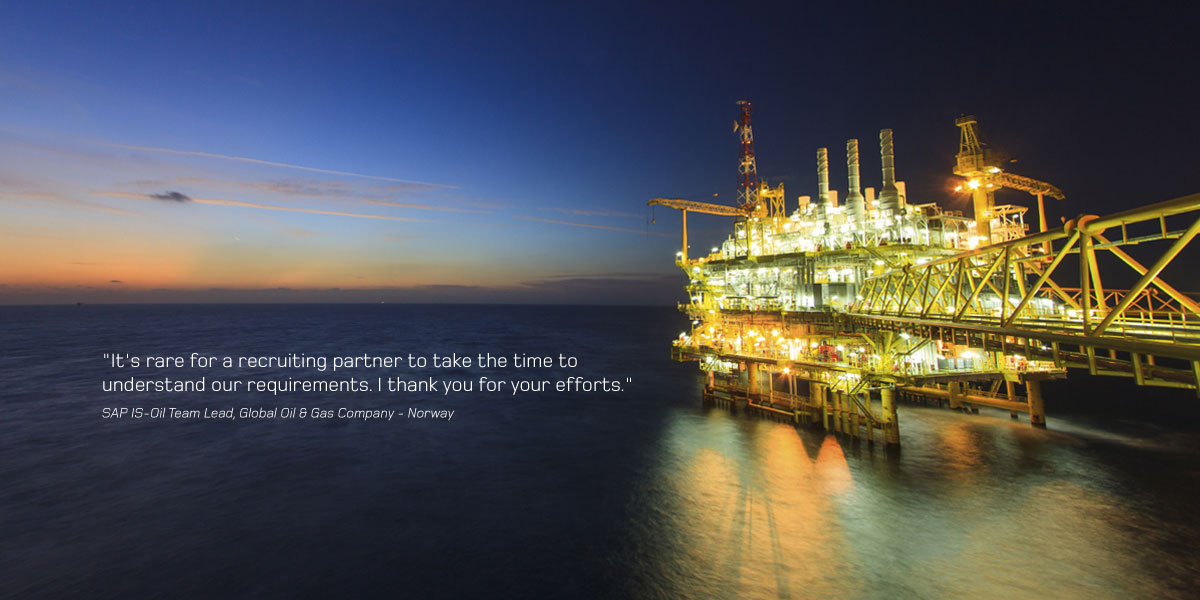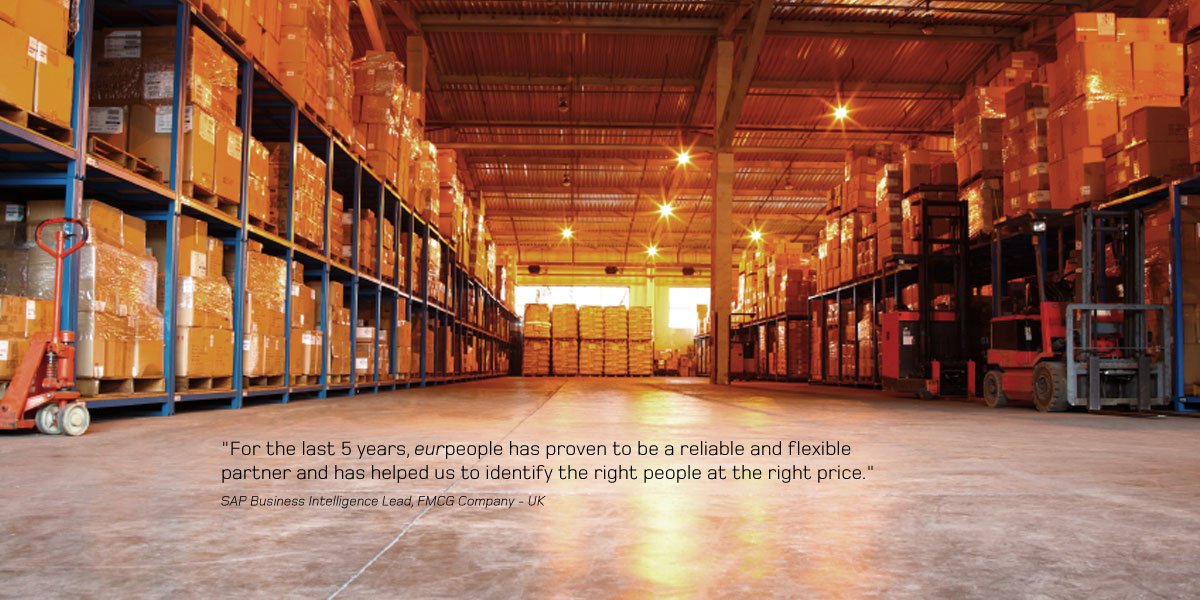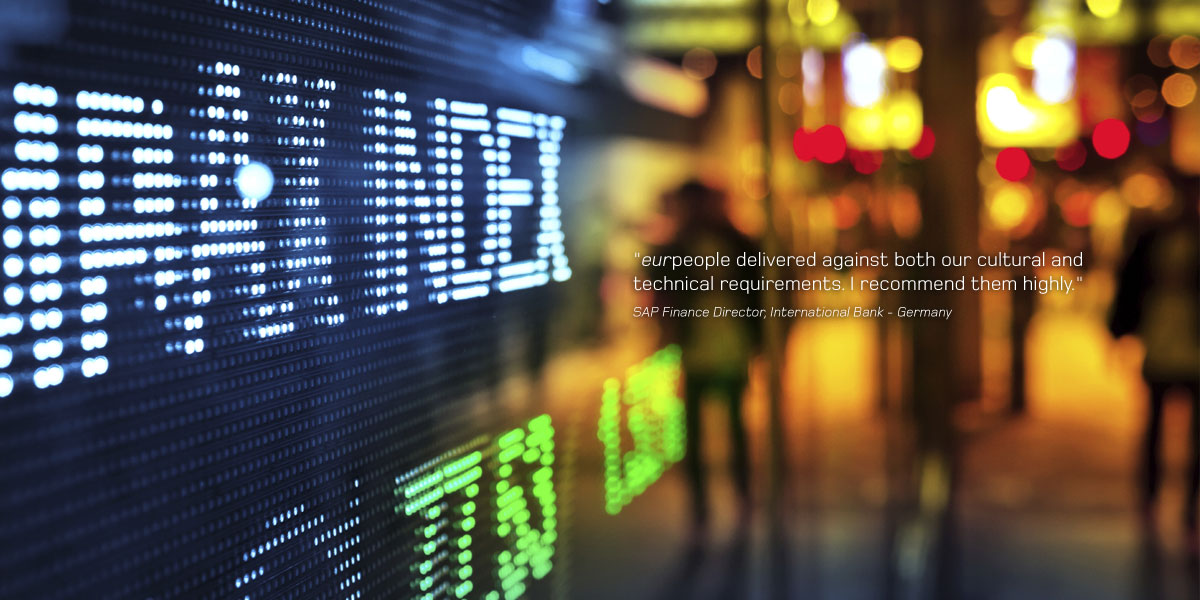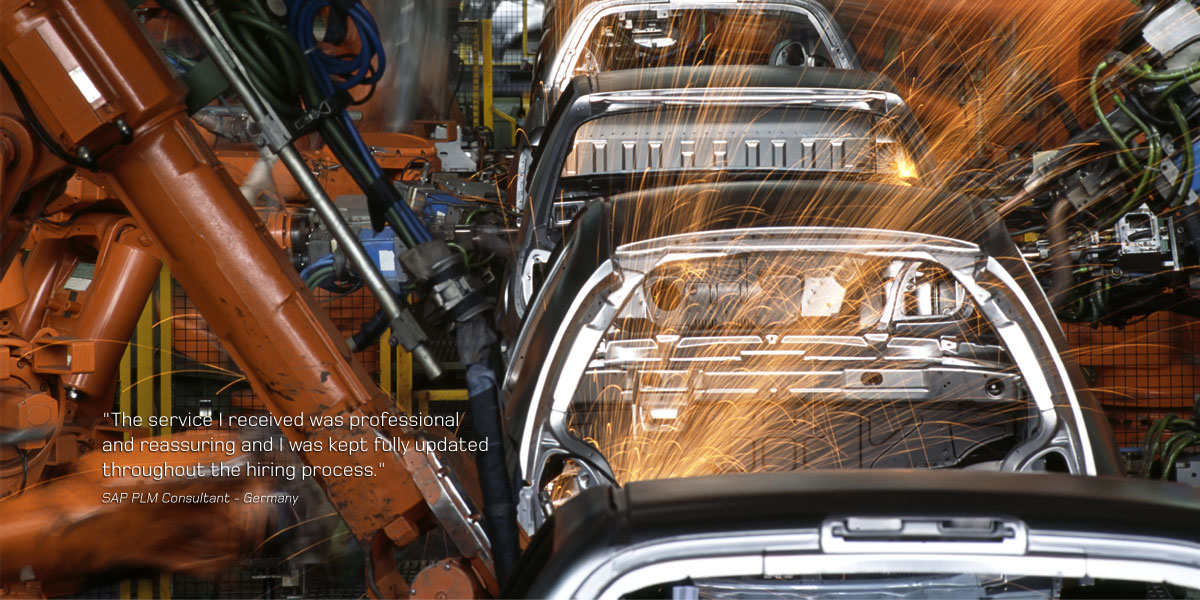Bechtle AG: An Eye on Digitalization
While many other companies are still busy discussing the possibilities of digital transformation, IT service provider Bechtle AG is already using data glasses in its daily operations – automating its logistics processes and increasing efficiency.
Boxes, nothing but boxes. Anyone entering Bechtle AG’s logistics center in Neckarsulm, Germany can easily spot which monitors and laptops are the most popular these days. Adorned with famous brand logos, the packages are stacked high on pallets, waiting for delivery to the customer. Smaller items are commissioned on the top floor, the so-called stage. Smartphones, cables, mice, you name it; employees pick the required quantity, assemble the deliveries, and pack them in green boxes that then rattle down the conveyor belts to the packing station.
But don’t dare tap anyone on the shoulder to ask about the current goods issues: They might turn around, and you might be scanned in the process. Do you remember which part of your body your personal bar code is attached to?
Kidding aside: The cool glasses that you see on more and more Bechtle warehouse staff these days just look like they’ve been designed personally by James Bond’s resident tekkie “Q”. In truth, they’re completely harmless – yet extremely important. Built by Vuzix, the heart of the smart glasses is a mini monitor with integrated camera that supports staff at the Bechtle Logistics Center digitally when picking orders. The integrated SAP AR (Augmented Reality) Warehouse Picker software then transfers the scanned data automatically to the SAP retailing system. The following video explains the process in more detail.
With 66 IT system houses in Germany, Austria, and Switzerland and e-commerce subsidiaries in 14 countries across Europe, the Bechtle Group provides midsize companies, large corporations, and institutions such as the European Commission with IT equipment of all kinds. Its business model boasts an effective combination of IT sales and services, with a portfolio of more than 68,000 hardware and software products that customers can order either online or through telesales. An average of 7,500 packages leaves its main distribution center near Heilbronn daily. But sometimes even 210,000 square feet of space aren’t enough anymore: The Group just kicked off construction of a new, 60,000-square-foot expansion of its warehouse.
And once that’s done, you’ll see even more data glasses around. The joint project innovation project recently launched between Bechtle and SAP is the continuation of a successful partnership. Back in 2011, Bechtle was an SAP ERP customer and wanted to modernize its central warehouse. It chose SAP Extended Warehouse Management (SAP EWM).
Area manager Klaus Kratz remembers the time well. “Wearable computers” were still in their infancy back then, he recalls. And today? We met with Mr. Kratz to talk about intelligent logistics.
Q: What are the main challenges facing logistics today?
A: The world of logistics is turning faster and faster. We need to become more productive, cost-effective, and customer-oriented at increasingly shorter intervals, and at the same time satisfy the increasing demand for customer-specific solutions.
Bechtle wants to generate €5 billion in revenue by 2020. What does this mean for your team?
We’re on track in terms of package volume. When I first started at Bechtle in 2010, it quickly became clear that the company needed a sustainable logistics strategy. If we didn’t do something quick, we’d soon be in total gridlock. So we sought the help of external consultants and promptly worked out a new strategy. Our Board of Directors indicated they’d support the project with all means necessary. In just 14 months, we built the stage, expanded our storage space, installed modern conveyor technology, and implemented SAP EWM. All to ensure we’d have a sound basis for future growth.
Speaking of growth, how are Bechtle’s logistics processes better than its competitors’?
We are very proud of our customer fill rate and the flexibility it gives us. Almost 100% of all incoming orders are processed the very same day. That encompasses between 2,800 to 3,000 delivery slips daily. This usually applies to custom deliveries as well, which, as I understand it, can be integrated into our standard processes with only a few minor adjustments.
Klaus Kratz (right): “Technologies such as augmented reality are radically changing the way we live and work.”
The European Commission and the European Parliament are prime examples of customers with special requirements. Orders for Luxembourg, Brussels, and Strasbourg often have to be dispatched within a two-hour time window. Of course, that’s not possible from our headquarters in Neckarsulm. In addition, tight security regulations at those customers onsite delays the handover of deliveries even further. So we adopted a pragmatic approach and partnered with a local service provider who ensures the efficient ‘last mile’ delivery of those orders.
Can you pinpoint any areas where improvements are needed?
We want to optimize the warehouse and our end-to-end processes even further, and leverage even more SAP EWM capabilities. We’ll soon also start looking into whether picking robots might be a viable option for us at some point. That’s still a long way off, though.
Everyone is talking about the digitalization of companies right now. How do things stand at Bechtle?
We are definitely part of this evolution. Our use of the data glasses is a perfect example of this. They help us process data much more efficiently – which in turn enables us to meet all of the requirements I mentioned earlier. That’s only possible today thanks to digitalization and system networking.
What do you use the data glasses for?
At the moment, pretty much all of our goods issue process for small items. We’re now looking at how we can deploy them in our goods receipt process as well. As for optimizing other potential use areas, we are in constant contact with SAP: It sends us the latest version of the app, we test it, and provide our feedback which is then channeled into further development. This collaboration works really well. The owner of Vuzix has also been here to discuss ongoing improvements to the hardware. In fact, we’ll be getting the next prototype of the glasses later this month.
I believe that one day, we’ll be able to control the entire logistics chain in our central warehouse with these glasses. The next application area for us would be parcel processing of large parts, with optimized bar code recognition. I can think of many other scenarios where data glasses could support us as well: Online videos, for example, could help us document damage incurred in transport. Or imagine a customer who wants to see how his server rack is assembled. Wearing the glasses, he could switch to a special user to follow the processes in our logistics and related areas. All in compliance with applicable data protection laws, of course.
The possibilities of data glasses – and one day, maybe even of contact lenses with similar functions – are enormous. There’s no doubt about it: Technologies such as augmented reality are radically changing the way we live and work.
Video by Norbert Steinhauser and Florian Hufnagel
| Location: | Start Date: | ||
| Rate: | Duration: | ||
| Type: | Reference: |
Contact Details
To find out more about how eurpeople can cater for your needs contact us at the following:
London Office
eurpeople Recruitment Ltd
South Point House, 321 Chase Road
London, N14 6JT, United Kingdom
Middle East Rep Office
eurpeople ME Recruitment Ltd
PO Box 309, Girne
Mersin 10, Turkey
